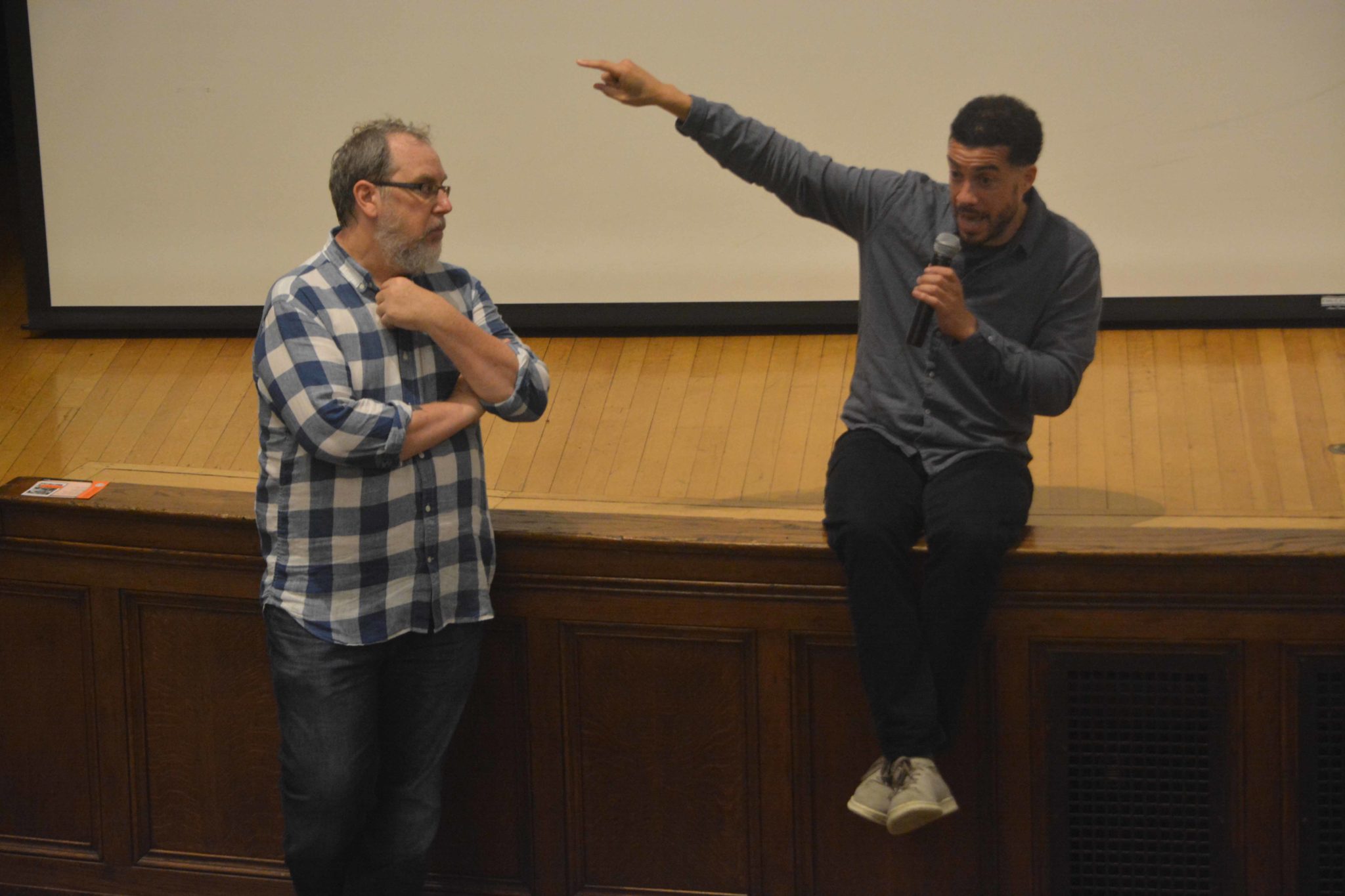
The verdict of OJ Simpson’s landmark case, which gripped the nation’s attention in 1994, shocked many Americans. But Ezra Edelman, the creator of “OJ: Made in America,” an Oscar-winning documentary that premiered last year, does not understand why everyone was surprised.
“People still don’t seem to engage [the trial] in the right way,” Edelman said. “The story is about more than just OJ.”
Edelman’s documentary aired at the Whitney Humanities Center Wednesday night, the last leg of a three-day screening tour at Yale. The eight-hour-long film recounts the story of the case and explores larger issues of race, class and fame in the United States. Edelman screened the last two hours of the film on Wednesday night, then fielded questions from the audience about his work and its relevance to the current state of American race relations.
Edelman emphasized that the documentary is as much a story about Los Angeles, its police department and its black community as it is about the infamous trial that captivated the country.
“I mean, it’s the fundamental American story,” Edelman said. “Race, class, sex, celebrity, violence, criminal justice, media — it’s everything.”
Edelman said he was initially worried about creating a film on a subject that so many other documentarians have already explored. But his fear dissipated after he decided to frame the crime, trial and verdict in relation to the events that preceded and influenced it. He knew then that he had something new to contribute to the conversation, he said.
“OJ: Made in America” is almost four times the length of the average blockbuster production, but its length is not without purpose. The first third of the film unpacks the implications of Rodney King’s beating at the hands of Los Angeles Police Department officers in 1991 and the Los Angeles riots that ensued after the officers involved were deemed not guilty. The middle third of the film follows Simpson’s murder trial from start to finish and the last third explores Simpson’s life after the trial.
Edelman spoke Wednesday about the inherent difficulties in making a film that balances the many facets of the complex story of the trial. Dubbing it “the ultimate American history thesis,” Edelman said he treated the narrative as a case study of the last 50 years of cultural tensions.
“It does give you, of course, pause for thought on the way you think about history,” said Patrick Barker GRD ’22, a graduate student who studies American history. “The way [Edelman] was thinking about cultural history was fascinating.”
Josephine Mollon, a postdoctoral student in psychology, said the documentary made her reflect on the contentiousness of the final verdict of Simpson’s murder trial. She said she was especially struck by a scene in the documentary in which juror Carrie Bess admits that the beating of Rodney King played a crucial role in Simpson’s acquittal.
“I was quite shocked at how brazen she was about it,” Mollon said.
Barker said he appreciated that the film tackled so many different issues rather than focusing on a single aspect of the trial and commended Edelman for successfully incorporating various threads of history into a cohesive project.
“OJ: Made in America” won Best Documentary at the 2017 Oscars.
Daniel Dager | daniel.dager@yale.edu







